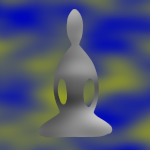Dear Friends,
In Equanimity, Upekkha, Jill illuminates the qualities of equanimity, and the way wisdom is supported by equanimity. It’s another rich talk, so I’ll parse out some of the qualities today, and the wisdom aspects tomorrow. Then we’ll have another couple of days looking at the heart quality of equanimity. I could use a little extra shot of balance, so I’m looking forward to these next few days!
There are many lists in the Insight Meditation tradition, and equanimity shows up in a lot of them, and usually towards the end of the list, suggesting this is a quality that has a lot of power and subtlety – and will probably take a lot of practice. So back to our intention, we can set our aim towards living more equanimously, and course-correct when we get pushed around by our habit energies.
The word equanimity isn’t one that I used much before I started meditating and listening to talks. Maybe it’s the same for you.
Merriam-Webster defines equanimity as “evenness of mind especially under stress” and “right disposition : balance”.* Some synonyms include collectedness, composure, imperturbability, serenity.*
Joys and sorrows, success and failure, highs and lows – with equanimity, we can meet all this with ease. Most days, that seems a big ask, but as Jill assures us, this is a quality we can cultivate.
The term upekkha, which gets translated to equanimity, means to look over – being in a position to see the bigger picture, to have a broader perspective.
This quality shows up in definitions of mindfulness. Some of the definitions Jill shares are:
“Mindfulness is the cultivation of clear, stable, and non judgmental awareness.”
“Being aware of what is going on, as it actually arises, not being lost in our confusion or judgment about it, our fantasies of what it means, our hopes, our fears, our aversion.”
Or my favorite, from Analayo, “Keep calmly knowing change.”
Jill states: “So every moment that we’re mindful, we’re also strengthening the non-reactivity of equanimity.”
Yet she emphasizes that “equanimity is not about trying to make ourselves into some kind of passive doormat. It’s about cultivating the capacity to respond, rather than react.” We react when we’re on autopilot, driven by our habitual energies. Responding “comes from attunement to what is. It’s a more intuitive and embodied engagement.”
For me, the poem “The Little Duck” by Donald C Babcock gives a sense of this embodied engagement. You can read a version here:
https://easingawake.com/?p=Blog131009Duck
To help cultivate this ability to weather the ups and downs, here’s a meditation from Amita Schmidt, which is described “A 20 min equanimity meditation that will help you navigate inner and outer difficulties. This meditation shows you how to rest in the eye of the storm, and open up space within the difficulty itself.”
https://www.dharmaseed.org/talks/64897/
Wishing you ease and balance,
Andrea

Andrea
I like the direction of these entries. Equanimity, serenity, calm. For me, the underlying source of equanimity is the stillness that lies deep at the centre – at the source. In my Buddhist practice ( such as it is ) I always had trouble understanding that our journey of awareness was into emptiness -into the void or the nothing. I felt, as a former Christian, that implied nihilism or the complete lack of meaning. I have now been to that place. The emptiness is really about a profound stillness, a calm silence, a pregnant serenity, an attendant patience, a waiting with bated breath – in fact the silent quiet gaze of the Great Mother Herself looking lovingly into the amazed gaze of the new babe (that would be me. ) That stillness is what undergirds my equanimity. I am seldom there but I know it now and i can breathe easy.
I like this poem from the Tao te Ching … I think it is relevant maybe
25
There was something formless and perfect before the universe was born.
It is serene. Empty.
Solitary. Unchanging.
Infinite. Eternally present.
It is the mother of the universe.
For lack of a better name,
I call it the Tao.
It flows through all things, inside and outside, and returns to the origin of all things.
The Tao is great.
The universe is great.
Earth is great.
Man is great.
These are the four great powers.
Man follows the earth.
Earth follows the universe. The universe follows the Tao. The Tao follows only itself.
Lao Tzu
Thanks for nudging me back into my eternal awareness. Greatly appreciated.
Roberto